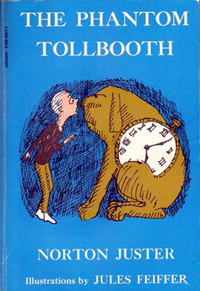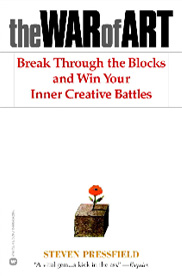Recommended Now:
Great Reads: books that may re-ignite your mind and spirit.
As a professor charged with instructing seminary students in the spiritual disciplines of the Christian faith, there are two books to which I have always turned that I know will be used of God to bring transformation. The first is Celebration of Discipline by Richard J. Foster and the second is Devotional Classics, edited by Richard J. Foster and James Bryan Smith.
 The jacket cover has this: “Hailed by many as the best modern book on Christian spirituality, Celebration of Discipline explores the ‘classic Disciplines,’ or central spiritual practices, of the Christian faith. Along the way, Foster shows us that it is only by and through these practices that the true path to spiritual growth can be found. Dividing the Disciplines into three movements of the Spirit, Foster shows how each of these areas contribute to a balanced spiritual life. The inward Disciplines of meditation, prayer, fasting and study offer avenues of personal examination and change. The outward Disciplines of simplicity, solitude, submission and service help prepare us to make the world a better place. The corporate Disciplines of confession, worship, guidance, and celebration bring us nearer to one another and to God.”
The jacket cover has this: “Hailed by many as the best modern book on Christian spirituality, Celebration of Discipline explores the ‘classic Disciplines,’ or central spiritual practices, of the Christian faith. Along the way, Foster shows us that it is only by and through these practices that the true path to spiritual growth can be found. Dividing the Disciplines into three movements of the Spirit, Foster shows how each of these areas contribute to a balanced spiritual life. The inward Disciplines of meditation, prayer, fasting and study offer avenues of personal examination and change. The outward Disciplines of simplicity, solitude, submission and service help prepare us to make the world a better place. The corporate Disciplines of confession, worship, guidance, and celebration bring us nearer to one another and to God.”
“Like a child exploring the attic of an old house on a rainy day, discovering a trunk full of treasure and then calling all his brothers and sisters to share the find, Richard J. Foster has ‘found’ the spiritual disciplines that the modern world stored away and forgot, and has excitedly called us to celebrate them. For they are, as he shows us, the instruments of joy, the way into mature Christian spirituality and abundant life.”—Eugene H. Peterson
*****
 Incorporating all six traditions, or “streams,” that comprise a healthy and holistic life of faith, the 52 selections in the Devotional Classics have been organized to introduce the reader to the great Christian devotional writers over the course of a year. Each entry includes a related biblical passage, discussion questions and individual and group exercises.
Incorporating all six traditions, or “streams,” that comprise a healthy and holistic life of faith, the 52 selections in the Devotional Classics have been organized to introduce the reader to the great Christian devotional writers over the course of a year. Each entry includes a related biblical passage, discussion questions and individual and group exercises.
The devotional readings move through “The Prayer-Filled Life” to “The Virtuous Life,” The Spirit-Empowered Life,” “The Compassionate Life,” “The Word-Centered Life,” and “The Sacramental Life.” Devotional Classics features readings from Augustine of Hippo, Blaise Pascal, Francis of Assisi, Dietrich Bonhoeffer, Julian of Norwich, Martin Luther, Soren Kierkegaard, Annie Dillard, Thomas Merton, Kathleen Norris, Dallas Willard, John Calvin, and many more.
*****
 When I have been in barren places and my soul felt dry and withered, Streams in the Desert has brought refreshment.
When I have been in barren places and my soul felt dry and withered, Streams in the Desert has brought refreshment.
Amazon carries this description of the book: “In a barren wilderness, L. B. Cowman long ago discovered a fountain that sustained her, and she shared it with the world, Streams in the Desert—her collection of prayerful meditations, Christian writings, and God’s written promises–has become one of the most dearly loved, best-selling devotionals of all time since its first publication in 1925. Filled with insight into the richness of God’s provision and the purpose of His plan, this enduring classic has encouraged and inspired generations of Christians. I heard the flow of hidden springs; before me palms rose green and fair; The birds were singing; all the air was filled and stirred with angels’ wings. Now James Reimann, editor of the highly acclaimed updated edition of My Utmost for His Highest by Oswald Chambers, again brings us the wisdom of the past in the language of today, by introducing this updated edition of Streams in the Desert. With fresh, contemporary wording and precise NIV text, the timeless message of the original flows unhindered through these pages, lending guidance and hope to a new generation of believers. We never know where God has hidden His streams. We see a large stone and have no idea that it covers the source of a spring. We see a rocky area and never imagine that it is hiding a fountain. God leads me into hard and difficult places, and it is there I realize I am where eternal streams abide. Day by day, Streams in the Desert will lead you from life’s dry desolate places to the waters of the River of Life—and beyond, to their very Source.”
*****
This delightful fantasy, The Phantom Tollbooth, was written in 1961 and is filled with wonderful puns and wordplay that speak eloquently and prophetically to the realities of our day.
As Maurice Sendak notes in his appreciation, “the book treats, in fantastical terms, the dread problems of excessive specialization, lack of communication, conformity, cupidity, and all the alarming ills of our time . . . The dumbing down of America is proceeding apace. Juster’s allegorical monsters have become all too real. The Demons of Ignorance, the Gross Exaggeration (whose wicked teeth were made ‘only to mangle the truth’), and the shabby Threadbare Excuse are inside the walls of the Kingdom of Wisdom, while the Gorgons of Hate and Malice, the Overbearing Know-It-All, and most especially the Triple Demons of Compromise are already established in high office all over the world. The fair princesses, Rhyme and Reason, have obviously been banished again. We need Milo! We need him and his endearing buddies, Tock the Watchdog and the Humbug, to rescue them once more. We need them to clamber aboard the dear little electric car and wind their way around the Doldrums, the Foothills of Confusion, and the Mountains of Ignorance, up into the Castle in the Air, where Rhyme and Reason are imprisoned, so they can restore them to us.”
“A classic…Humorous, full of warmth and real invention.”—The New Yorker
Incisive and insightful . . . what a treat!
*****
 “Any Baedeker will tell us where we ought to travel, but only Alain de Botton will tell us how and why. With the same intelligence and insouciant charm he brought to How Proust Can Change Your Life, de Botton considers the pleasures of anticipation, the allure of the exotic, and the value of noticing everything from a seascape in Barbados to the takeoffs at Heathrow.
“Any Baedeker will tell us where we ought to travel, but only Alain de Botton will tell us how and why. With the same intelligence and insouciant charm he brought to How Proust Can Change Your Life, de Botton considers the pleasures of anticipation, the allure of the exotic, and the value of noticing everything from a seascape in Barbados to the takeoffs at Heathrow.
Even as de Botton takes the reader along on his own peregrinations, he also cites such distinguished fellow-travelers as Baudelaire, Wordsworth, van Gogh, the biologist Alexander von Humboldt, and the eighteenth-century eccentric Xavier de Maistre, who catalogued the wonders of his own bedroom. The Art of Travel is a wise and utterly original book. Don’t leave home without it.” (From the back cover.)
“A jewel of civility, wit and insight; de Botton has produced wondrous essays. An invitation to hyperbole. . . a volume to give one an expansive sense of wonder.” – The Baltimore Sun
“There is something Proustian in The Art of Travel, in the best sense, for Mr. de Botton is a kind of flaneur, strolling through his subject thoughtfully and offering nuanced truths based of his reading, experience and philosophical temperament.” – The Wall Street Journal
“Illuminating. . . A lovely combination of enthusiasm, sensitivity, a care for the large and small, and the local and the foreign. . . Reading de Botton’s book will help a person discover something fabulous in the everyday.” – Chicago Tribune
*****
The War of Art is filled with advice from an artist who understands the daily battle and wages the daily battle that is writing “professionally.” I found much with which to resonate in the book and, as the mother-in-law of a career Marine, I especially appreciated Pressfield’s passage on what he learned as a member of the Corps. Contrary to the popular myth, he writes, “Marine training does not turn baby-faced recruits into bloodthirsty killers. It teaches something far more useful: how to be miserable.” And, this, Pressfield opines, is “invaluable for an artist. Marines love to be miserable. Marines derive a perverse satisfaction from having colder chow, crappier equipment, and higher casualty rates than any outfit of dogfaces, swab jockeys or flyboys, all of whom they despise. Why? Because these candy-asses don’t know how to be miserable.”
Pressfield concludes: “The artist committing himself to his calling has volunteered for hell, whether he knows it or not. He will be dining for the duration on a diet of isolation, rejection, self-doubt, despair, ridicule, contempt and humiliation. The artist must be like that Marine. He has to know how to be miserable. He has to love being miserable. He has to take pride in being more miserable than any soldier or swabbie or jet jockey. Because this is war, baby. And war is hell.”
Telamon of Arcadia, a fifth century B.C. mercenary, observed that “It is one thing to study war and another to live the warrior’s life.” Pressfield finds that: “Aspiring artists defeated by Resistance share one trait. They all think like amateurs. They have not yet turned pro . . . The amateur plays for fun. The pro plays for keeps. To the amateur, the game is his avocation. To the pro it’s his vocation. The amateur plays part-time. The pro plays full-time. The amateur is a weekend warrior. The professional is there seven days a week.”
Aspiring artists are encouraged to take heart from a deep truth reckoned by Somerset Maugham: “by performing the mundane physical act of sitting down and starting to work, he [came to understand that he] set in motion a mysterious but infallible sequence of events that would produce inspiration.”
When all is said and done, Pressfield (author of The Legend of Bagger Vance and Gates of Fire) exposes the enemy Resistance, exposes the evidence of its presence (fear, procrastination, self-dramatization and the like) and offers helps toward living the “unlived life within.”





